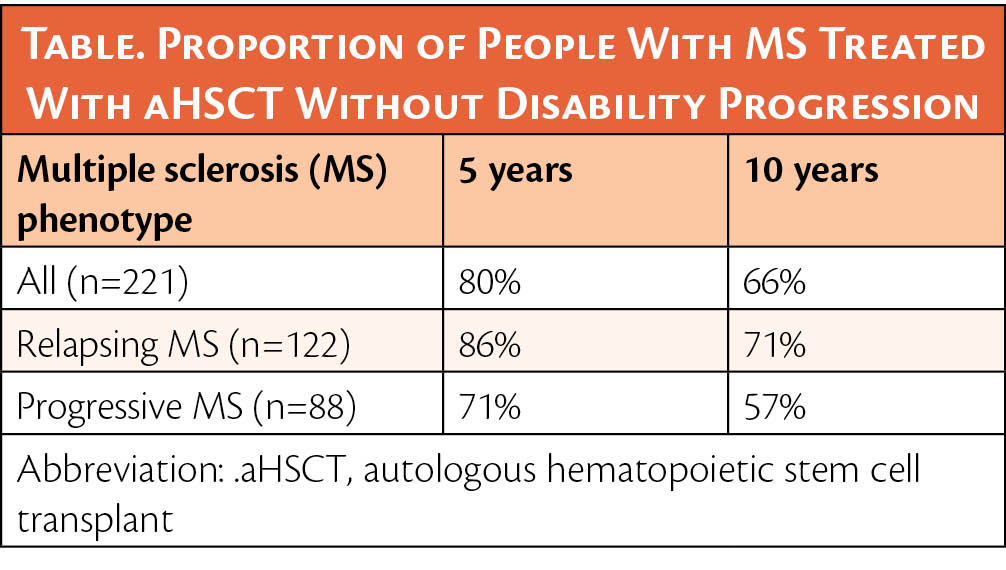Decreased 10-Year Disability Progression in Multiple Sclerosis Seen With Autologous Hematopoietic Stem Cell Treatment
A new study published in Neurology suggests autologous hematopoietic stem cell transplant (aHSCT) therapy for multiple sclerosis may have efficacy for preventing disability progression of multiple sclerosis (MS). In aHSCT therapy, stem cells are extracted from a person with MS and later, after total immunosuppression with pharmaceutical therapy, reimplanted to reconstitute the individual's immune system.
In this study, individuals with relapsing MS (n=122) or progressive MS (n=88) who were average age 35, had aHSCT treatment over a 22-year period (1997-2019) and were assessed 6 months, 5 years, and 10 years after treatment. Most participants with either form of MS had no disability progression at 5 years, and at 10 years more than half of participants continued to have no worsening of disability (Table). Some individuals also had improvement in their disability symptoms after treatment.

“So far, conventional treatments have prevented people with MS from experiencing more attacks and worsening symptoms, but not in the long term,” said Matilde Inglese, MD, PhD, University of Genoa, Italy. “Previous research shows more than half of the people with MS who take medication for their disease still get worse over a 10-year period. Our results are exciting because they show hematopoietic stem cell transplants may prevent someone’s MS disabilities from getting worse over the longer term. Our study demonstrates that intense immunosuppression followed by hematopoietic stem cell transplants should be considered as a treatment for people with MS, especially those who don’t respond to conventional therapy.”
